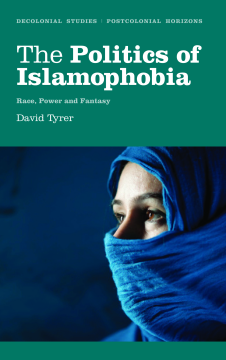
Additional Information
Book Details
Abstract
Following 9/11, 7/7 and the War on Terror, Islamophobia has become a ubiquitous expression of political racism; its presence is felt in immigration restrictions, critiques of multiculturalism and the co-option of feminism that casts Muslim women as abject figures.
Throughout the book, what emerges is that most of our knowledge of Muslim communities is apprehended through signifiers, as defined by 'liberal' politicians and media: there is the - aforementioned - maligned Muslim female, the ontically pure religious Muslim and the fundamentalist terrorist. Through study of instances where politicians - from Tony Blair and David Cameron, to Geert Wilders and Enoch Powell - activate these racist essentialisms we begin to see how Islamophobia takes form as an expression of racialised governmentality. By mobilising accounts across different national contexts, David Tyrer reveals how Islamophobia is defining relations between states and ethnicised minorities.
'A new framework of political and social theory which will facilitate the interrogation of Islamophobia, drawing on complex, multi-level analysis that makes a major contribution'
Ian Law, Professor of Racism and Ethnicity Studies at the University of Leeds and author of Racism and Ethnicity: Global Debates, Dilemmas, Directions (2010).
Table of Contents
| Section Title | Page | Action | Price |
|---|---|---|---|
| Cover | Cover | ||
| Contents | vii | ||
| Acknowledgements | ix | ||
| Prologue | 1 | ||
| 1. Framing Islamophobia | 21 | ||
| 2. Now you see me: fantasy and misrecognition | 41 | ||
| 3. Once more, with feeling: Islamophobia and racial politics | 60 | ||
| 4. Post-politics and Islamophobia | 82 | ||
| 5. Democrat, moderate, Other | 102 | ||
| 6. Islamophobia beyond the war on terror | 123 | ||
| 7. Questions, questions, questions: reframing Islamophobia | 147 | ||
| Epilogue | 169 | ||
| Bibliography | 174 | ||
| Index | 193 |
